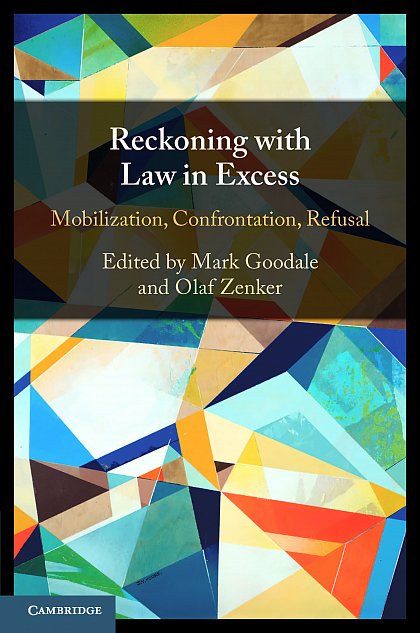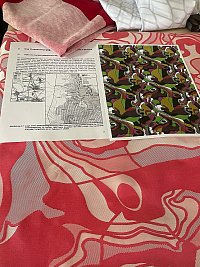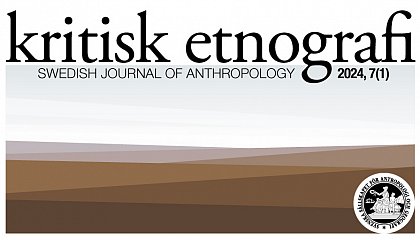
Kontakt
Seminar für Ethnologie
Reichardtstraße 11
06114 Halle
Sprechzeiten:
Mo.-Fr. 9.00 Uhr - 12.00 Uhr
Bianca Bernig
Telefon: (0345) 55-24191
sekretariat@ethnologie.uni-...
Reichardtstraße 11
06114 Halle
Cornelia Heimann, M.A.
Telefon: (0345) 55-24201
secretary@ethnologie.uni-ha...
Reichardtstraße 11
06114 Halle
Seminar für Ethnologie

Einzelvortrag WiSe 25_26 - Brkovic
Lehrveranstaltungen
Lehrveranstaltungen Wintersemester 2025/2026
KVV Ethnologie WiSe25-26_Stand-15.10.2025_V10.pdf
(658,8 KB) vom 15.10.2025

Nur Pflegen ist schöner
Vortrag im Rahmen der Ringvorlesung "Bildung für nachhaltige Entwicklung" von Janne von Seggern
Am 3. November 2025 findet im Rahmen der Ringvorlesung "Bildung für nachhaltige Entwicklung" (Ringvorlesung im Rahmen LSQ und Zertifikatskurs) ein Vortrag von Janne von Seggern zum Thema "Indigene Perspektiven: ʻāina-based education in Hawaiʻi" statt. Der Vortrag ist aufgezeichnet und für MLU Studierende und Mitarbeitende über StudIP einsehbar.

Prof. Olaf Zenker-Reckoning with Law in Excess_2025
Neue Open-Access-Publikation zum Aufstieg & Niedergang des Rechts als Modalität gesellschaftlichen Wandels
Der von Mark Goodale und Olaf Zenker herausgegebene Band Reckoning with Law in Excess: Mobilization, Confrontation, Refusal ist kürzlich sowohl im Open Access als auch im Druck erschienen. Er bietet einen neuen Ansatz zum Verständnis der Beziehung zwischen Recht und sozialem und politischem Wandel in einer sich radikal verändernden und zunehmend unsicheren Welt. Die beitragenden Autor*innen untersuchen eine Vielzahl von Fällen, in denen soziale Bewegungen Gerechtigkeit und sozialen Wandel innerhalb, gegen und jenseits des Rechts anstreben. Dabei legt diese interdisziplinäre Forschung Muster frei, wie Recht und Legalität in bestimmten historischen Momenten eine erhöhte Bedeutsamkeit erlangen – ein Prozess der Überfrachtung, der meist einer Ernüchterung über die Grenzen des Rechts weicht. Indem das Buch diese komplexe Dialektik der Auseinandersetzung mit dem Recht kritisch reflektiert, beleuchtet es eine der wichtigsten und folgenreichsten Dynamiken in einer Zeit der Klimakrise, des zunehmenden Populismus und der sozialen Konflikte. Neben Beiträgen der Herausgeber enthält der Band Kapitel von Lynette Chua, Julia Eckert, Kiri Santer, Matthew Canfield, Arzoo Osanloo, Nitzan Shoshan, Penelope Anthias, Agathe Mora, Rachel Sieder und Kamari Clarke. Hier geht es zu den frei verfügbaren Beiträgen des Buches
Lehrfoschungsprojekt POLY! Endpräsentation
POLY! ist eine Kollaboration zwischen dem Seminar für Ethnologie an der MLU und dem Studiengang Textildesign an der BURG im Rahmen des MA-Seminars "Cheoethnographie: Textile und textliche Außeinandersetzungen mit der Chemiefaser in Wolfen“. Die textil-textlichen Projektergebnisse werden präsentiert am:
Dienstag, 8. JULI 2025 um 14 Uhr
Campus Design der Burg Giebichenstein
Neuwerk 7
Lehrklassengebäude
Raum 105 im Erdgeschoss

Lehrfoschungsprojekt POLY!

Neuer Open-Access-Reader „Public Anthropology“ erschienen
Von Ethnolog:innen wird heute erwartet, dass sie sich zu aktuellen sozialen Problemen und Debatten positionieren. Dieser frei verfügbare Reader bietet erstmals einen Überblick über die vielfältigen Praktiken, Formate und Ansätze, mit denen das Vorhaben der »Public Anthropology« an Instituten der ethnologischen Fächer in Deutschland heute umgesetzt wird. In fünf Sektionen – Öffentlichkeiten, Kollaborationen, Positionierungen, Transformationen und Vermittlung – diskutieren Autor:innen verschiedener Karrierestufen praxisnahe Beispiele für öffentlich-ethnologisches Arbeiten. Sie machen sowohl die wissenschaftlichen und gesellschaftlichen Zugewinne der Public Anthropology als auch die damit verbundenen Herausforderungen sichtbar.
Unser Institut hat ebenfalls zwei Kapitel beigesteuert: „Public Anthropology im Spätkapitalismus“ (Janine Hauer & Asta Vonderau) und „Strategische Netzwerke inmitten konfligierender Positionalitäten: Public Anthropology in der südafrikanischen Landreform“ (Olaf Zenker).
Hier geht’s zum kostenlosen Download des Readers

kritisk etnografi – Swedish Journal of Anthropology (Vol. 7, No. 1)
Neue Veröffentlichung zu Infrastrukturen und Umwelten im Spätindustrialismus
In der aktuellen Ausgabe von kritisk etnografi – Swedish Journal of Anthropology (Vol. 7, No. 1) erscheint die von Asta Vonderau gemeinsam mit Chakad Ojani und Susann B. Ullberg herausgegebene Sammlung Infrastructures and Environments in Late Industrialism. Die Beiträge untersuchen ethnographisch, wie sich Spätindustrialismus an der Schnittstelle von Infrastruktur und Umwelt manifestiert – etwa in der Instandhaltung des Zugnetzes von Mumbai, im Umbau der schwedischen Bergbaustadt Kiruna oder in den ökologischen Veränderungen eines ehemaligen Braunkohlereviers in Deutschland.
Die Veröffentlichung ist kostenlos zugänglich unter: https://kritisketnografi.se/2024-2/
Forschungsbasierter Masterstudiengang Ethnologie / Social and Cultural Anthropology

MA Ethnologie Halle
Der zweisprachige Masterstudiengang MA Ethnologie 120 beinhaltet neben dem sozial- und kulturtheoretisch fundierten Studium auch die angeleitete Konzeption und Durchführung eines individuellen empirischen Forschungsprojekts weltweit. Beispiele studentischer Masterforschungsfelder gibt es hier.
Alle weiteren Infos finden sich hier. Allgemeine Informationen zur Bewerbung während der Corona-Epidemie finden sich hier.




